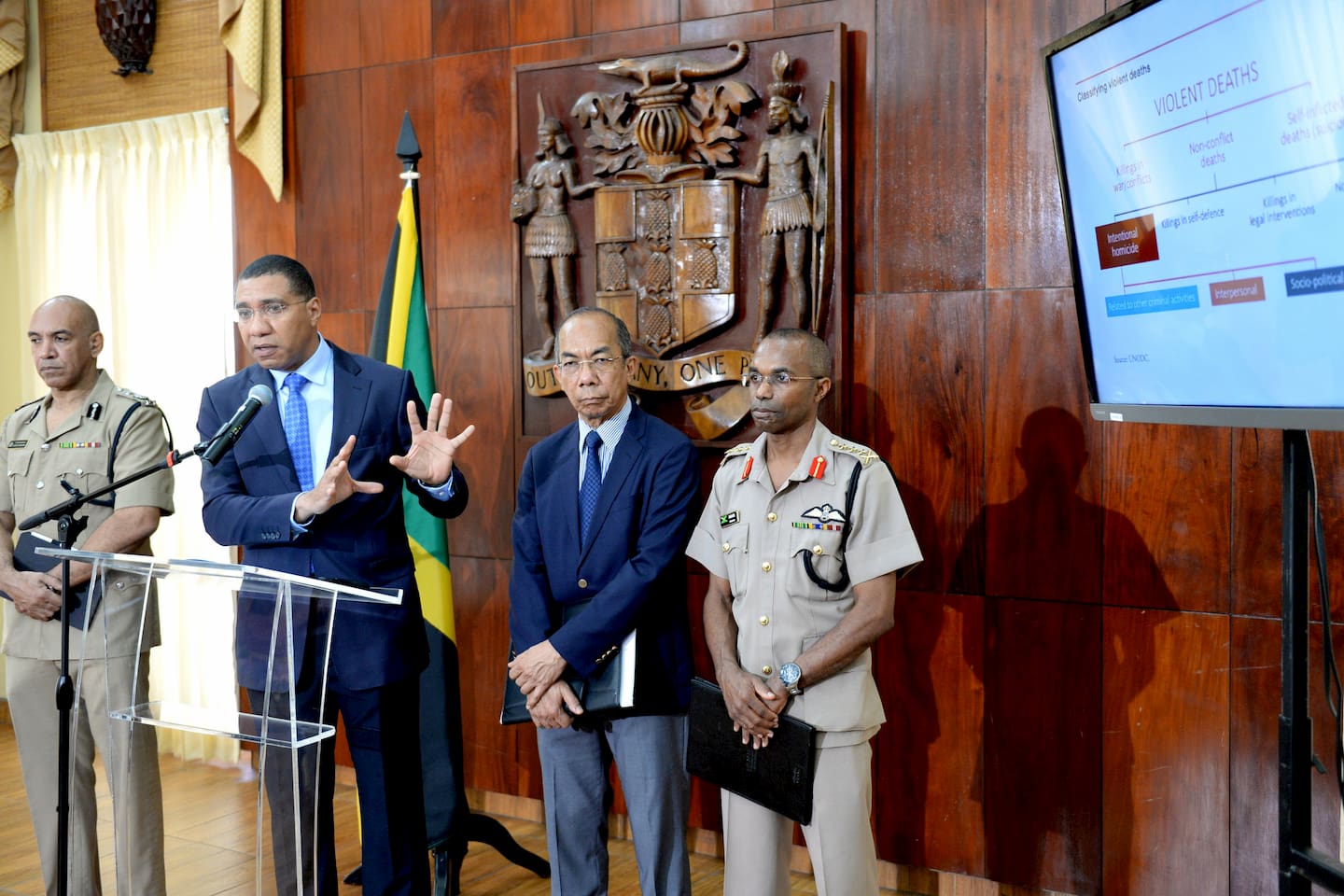The declaration by the minister of national security and member of parliament for North West St James, Dr Horace Chang, that various social intervention programmes “have failed to effect transformation in Montego Bay” may well be accurate, but is certainly incomplete.
Violence and the case for interventions of force
To tell a person with Stage Four cancer caused by lifestyle choices, such as smoking, to walk up Mountain Spring three mornings a week and drink green juice with a sprinkle of moringa is not bad advice, just not what the situation requires at that moment. More drastic interventions may be required, such as chemotherapy, surgery, among others. And so it is with social intervention programmes. Time and place and context are important.
But what of the advanced cancer of violence? Any crime-fighting plan in the context of violent crime, particularly gun violence, must include an element of state force, not to say state abuse. This state force must be accompanied by an efficient and accessible system of timely and evident justice. We have much work to do on both fronts.
Notwithstanding the messy nature of the interventions by force to date, the facts are before us that the nation’s SOEs have reduced the number of murders in various communities. There are many reports of students being able to go to school peacefully, study at nights, persons now able to go about their daily lives without fear because of the presence of security forces. This mode of intervention, therefore, cannot be dismissed out of hand.
Caveat to use of force
We are a violent people. From the rebellion of King Tacky in 1760 to the recent mob killing of a motorist for the slight of splashing someone on the sidewalk, our bloodthirst is evident but not inevitable. It is known and recognised by the leadership of the Jamaica Constabulary Force that the phenomenon known as the ‘cycle of violence’ is real. That is to say, the major predictor of violence is previous violence. Violence begets violence. This works between persons, families, gangs, communities, but also – and here we must be careful – it applies to the relationship between the police and communities. Therefore, the manner of use of force by the police must be carefully measured and doled out so that the effect is not further violence but healing. This is difficult, but must be done.
Peace and the case for social intervention programmes
It took 20 years, from 1935 to 1955, to test and find an effective polio vaccine. During the period, some treatments worked a little, some didn’t work well, and some killed the patient. Today, we live in a practically polio-free world because of a rigorous scientific approach to finding a treatment that works, not declaring after the first failed tests, that treatments don’t work.
The challenge before us is not to boldly declare that social intervention programmes don’t work, but to find the programmes that do. There is a paucity of rigorous social-science approaches to testing the efficacy of various social intervention programmes aimed specifically at reducing violence, and then shaping those that work. What we do know is that there are many social intervention programmes around the world that have reduced violence.
In my second home city of Medellín, Colombia, a range of social intervention programmes have been introduced since the peak of the bloodbath occasioned by the cocaine cartels and their sicarios. These programmes have included apparently obtuse initiatives such as constructing a gondola to connect communities, providing free high-quality music schools in the barrios, building public meeting spaces and establishing sites to remember victims of violence, including ‘los desaparecedos’, the disappeared.
A study published in 2011 titled Reducing Violence by Transforming Neighbourhoods: A Natural Experiment in Medellín, Colombia, reported a 66 per cent greater decline in homicides in neighbourhoods with social intervention programmes compared to control communities or those without such programmes. Violent crime remains a problem in Medellín, but the progress has been remarkable really. Even so, it is important to reflect on, and absorb, the sentiment of Alejandro Echeverri speaking as director of the Center of Urban and Environmental Studies at the EAFIT University in Medellín: “Everything is fragile, precarious. Medellín has done some successful things, but you can never say ‘It is finished.’”
Of course, we know here in Jamaica that you can never say “It is finished” based on our experience with August Town, and the zero-murders phenomenon of 2016. Without strong policing to complement sustained community intervention programmes, the tendency for violence will re-emerge.
Missed opportunity in the chaos – entrepreneurship
Ever since the decoupling of gangs from political parties and the rise of the drug and scamming operations and their related violence, we have missed a curious phenomenon in the operations of these organisations. They have been led, in many cases, by persons who never had the benefit of the best education available in Jamaica. The Jamaican posses of the 1980s and 1990s were described by The New York Times as “sophisticated”. The complexity of their logistical network for the distribution of drugs confounded the Feds for years. Today, the scamming schemes are no less sophisticated, demonstrating an ability to pivot, reform itself, reshape itself to meet market opportunities, as if it were a Silicon Valley start-up. And when the scamming is stamped out, this entrepreneurial energy will find new market opportunities. It is worth spending time understanding this and seeking to direct this entrepreneurial genius into legal activity through social intervention focused on entrepreneurship.
Nation building is hard work. The frustration is real, but if there is a nation on earth that can solve a difficult problem creatively, that nation is Jamaica. Let’s keep at it.
Nelson ‘Chris’ Stokes is a development economist, entrepreneur, and transformational leadership speaker and coach. Send comments to viewpoints@gleanerjm.com and chris@nchristianstokes.com.






